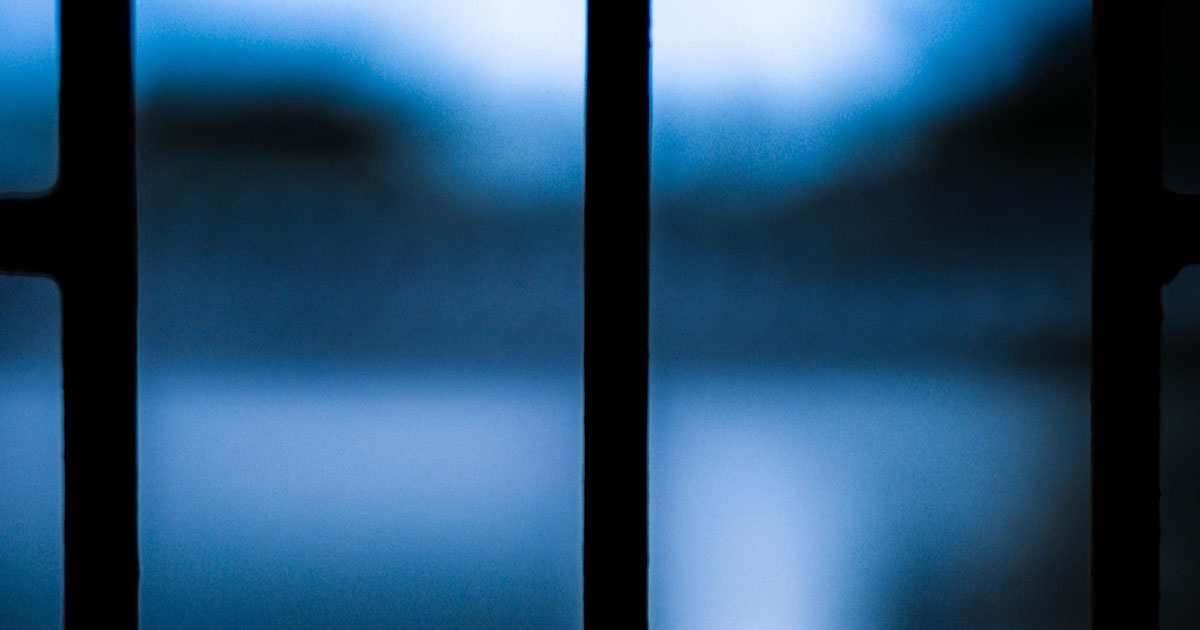FROM THE INSIDE
★ ★ ★ ★
THE FEAR OF CHANGE IN PRISON

Image by Oscar Ivan Esquivel Arteaga
By Ryan M. Moser
Logic and religion and science all point towards impermanence, the entropy of all matter and, in time, the end of all life. Yet even though I accept this rationally, embracing change is so hard—especially in prison. When I get into a comfortable, safe position behind bars, I don’t want anything to change. The fear of the unknown paralyzes me.
Whether it is living in a relatively quiet cell block, having a semi-normal bunkmate, being assigned a job with perks, having a nice officer on shift, or creating a perfect routine, stable circumstances matter so much that, when one or all of the specifics change, it sends me into an emotional tailspin. For most of us inside, this is because we’ve experienced a dangerous and unsettling situation before, and dread returning to that state of being.
During a prison sentence, change is often the enemy of inner peace. Moving to a new cell or prison happens frequently and at random. A sadistic correctional officer can turn an eight-hour shift into a nightmare; a handful of gang members can upturn an entire cellblock, and a job like the graveyard shift in the kitchen can make every moment miserable. Panic attacks, anxiety and depression come and go with changes, like the ebb and flow of the tides.
Such changes and moves may seem banal to the average person, but for me and millions of incarcerated men and women, it can mean the difference between life and death, peace and war. Before I came to prison, I actually thrived on change. I loved meeting new people, starting new jobs, and moving into new cities. A nascent relationship with a girl or tweak to my daily schedule was a welcome transition into new possibilities—a roll of life’s dice. It didn’t bother me to have to learn my way around a different neighborhood or train in a new field of work: I craved the experience of surprise and living in the moment, as capricious as it was.
I lived my life in a flux of movement, but prison has made me a creature of habit. I fear change because of what it can lead to in here and avoid it at all costs.
Not long ago, I was pulled out of my comfortable existence with the force of ten thousand hands. After living at the same incentivized/honor prison for 4 years, in a tranquil dormitory with an amiable bunky, working a desk job with benefits as a program facilitator, and having established a mutual respect and friendship with the guards and other prisoners, I was awakened at three o’clock in the morning and told to “pack my shit.”
My palms were sweating and the fear of change was all-encompassing. I had established a reasonable facsimile of a “good life” inside prison, and I didn’t want to leave. My thoughts raced and anxiety rose as I was handcuffed and shackled, then thrown onto a Blue Bird bus for transport across the state of Florida.
Moving house on the outside means meeting new neighbors at picnics or PTA meetings; moving into a new correctional institution means fighting and establishing boundaries through threats of violence. A new job at home requires some on-the-job training and some after-hours aperitifs; getting a good job assignment in the DOC requires paying the decision makers and politicking while avoiding work like swilling rotten food in the kitchen or washing another man’s underwear in the laundry.
A change in environment inside prison builds panic in my chest—it’s like my first day of incarceration all over again. From the moment I walk into a new prison and cellblock, my situational awareness pings as I survey my surroundings. I carry my belongings inside, trying to find my cell as I navigate a hundred hardened stares—trying to size me up. The wolves are looking for a sheep. A guard swears impatiently as he waits for a problem. I meet my new celly and evaluate the threat, hoping for a good guy to live with in a 6’ x 8’ concrete box.
This ceremony—repeated many times during a long sentence—can be the most stressful of times inside. A psychotic bunky can mean the end of safety and silence; an easygoing one can make your days (and nights) better as you relax into a routine. Violence in the penitentiary is present at all times, and it’s hard to let your guard down.
When you live on a cell block for an extended period of time, things get easier. I always meet some allies, establish boundaries, earn respect, and get used to the institutionalization of the men around me. I learn what to expect from the officers, when to stand my ground, who to avoid, and how to do my time in that little world of horror. But enter a new prison, or change cell blocks, and I must navigate a labyrinth of new personalities all over again, and there’s always problems.
Something happened this time, though … a change in my mindset to match the changes in my environment. Because of my Buddhist practice over the years, I’ve found tranquility and peace in knowing that everything in life changes. Nothing is permanent, including the violence and hatred I experience inside prison. I have earned equanimity through a decade of meditation and the test of my circumstances. Because one day soon, when I’m free and living back in society, things will change when I’m comfortable—as they inevitably do. A metamorphosis will come regardless of what I do or think or say. And I have to be prepared. The first noble truth in Zen—life is suffering—is contingent on the second noble truth: the cause of my suffering is my desire for things to be the way I want them.
So even though I’m in a terrible prison filled with negativity and darkness, I will embrace the changes now as I did then, back before I found myself incarcerated. I will accept change as a part of the grand experience, and use the wisdom of teachers long ago passed. I will smile at every unknown, and welcome new beginnings.

Ryan M. Moser is a recovering addict serving a ten-year sentence in the Florida Department of Corrections for a nonviolent property crime. Previous publications include Evening Street Press, Storyteller, Santa Fe Literary Review, The Progressive, themarshallproject.org, medium.com, thewildword.com, thestartup.com, and more. In 2020, his essay “Injuries Incompatible with Life” received an Honorable Mention award from PEN America, including publication on pen.org. Ryan is a Philadelphia native who enjoys yoga, playing chess, and performing live music. He is a proud father of two beautiful sons.
This column was made possible with the help of Exchange for Change, a non-profit based in Florida that teaches writing in prisons and runs letter exchanges between incarcerated students and writers studying on the outside.
Exchange for Change believes in the value of every voice, and gives their students an opportunity to express themselves without the fear of being stigmatized. Their work is based on the belief that when everyone has the ability to listen and be heard, strong and safe communities are formed, and that with a pen and paper, students can become agents of change across different communities in ways they may otherwise have never encountered.
























0 Comments